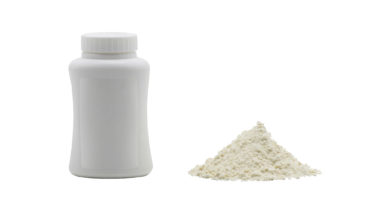Top Class Actions’s website and social media posts use affiliate links. If you make a purchase using such links, we may receive a commission, but it will not result in any additional charges to you. Please review our Affiliate Link Disclosure for more information.
Plaintiffs in as many as 85,000 lawsuits against Bayer have reached a provisional Roundup settlement, resolving claims that the weedkiller Roundup caused non-Hodgkin lymphoma.
The Los Angeles Times and Bloomberg News reported an anonymous source close to the negotiations said Bayer is ready to put $10 billion towards settling the lawsuits. The person was not authorized to speak publicly about the negotiations.
Plaintiffs would receive between a few thousand dollars and a few million dollars, but Bayer’s supervisory board allegedly needs to approve the deal first.
Tens of thousands of other cases remain unresolved, and some lawyers may take their cases out of the settlement because Bayer has asked lawyers to take less money in fees because of losses the company says stem from the coronavirus pandemic, according to the anonymous source.
Roundup Settlement for Plaintiffs with NHL
Plaintiffs who have used Roundup for years blame the toxic mixture for the development of cancer, most often non-Hodgkin lymphoma (NHL).
Monsanto created Roundup’s active ingredient glyphosate in the early 1970s. The herbicide killed nearly every weed known to man, and at the time, the herbicide was said to be environmentally safe.
In 2016, Bayer announced it was buying Monsanto, and the deal was finalized in 2018. Just a couple of months later, a California school groundskeeper received a $289 million award from a jury that believed his years of Roundup exposure caused him to develop non-Hodgkin lymphoma. A judge later reduced the award to $78 million, but the case was just the beginning of tens of thousands of lawsuits that Bayer would have to face as Roundup’s new parent company.
Monsanto always insisted that Roundup was safe, but the World Health Organization’s International Agency for Research on Cancer declared in 2015 that the herbicide was “probably carcinogenic” and has stood by that decision.
In April 2019, the U.S. Environmental Protection Agency (EPA) issued a statement from EPA Administrator Andrew Wheeler, who said, “EPA has found no risks to public health from the current registered uses of glyphosate.”
The EPA’s latest position is that glyphosate is not a carcinogen.

The anonymous source also noted that Bayer still plans to appeal the cases the company has lost, including the California groundskeeper case, which is set for oral arguments in San Francisco on June 2.
The Roundup settlement offer purportedly does not apply to plaintiffs who allege they developed multiple-myeloma cancer from glyphosate.
Some Studies Point to Roundup Mixture as More Dangerous than Glyphosate
In some cases, researchers have concentrated on the mixture of chemicals contained within Roundup and not just on glyphosate alone.
William Sawyer, a forensic toxicologist, testified that Roundup contains not only glyphosate, but also a surfactant called POEA that makes glyphosate more deadly by allowing it to penetrate into a plant’s cuticles. Sawyer added that Roundup contains formaldehyde, too, which the World Health Organization has said is “carcinogenic to humans.”
In his testimony, Sawyer said that Roundup is about 50 times more toxic to living cells than glyphosate alone.
Sawyer’s testimony came during the trial that pitted Alberta and Alva Pilliod against Bayer. The Pilliods said they had sprayed Roundup on the grounds of their properties from 1975 to 2011, and that their use of Roundup led to both of them developing lymph system cancer.
A California jury awarded the Pilliods more than $2 billion, but a judge reduced the amount to $87 million.
Join a Roundup Weed Killer Cancer Class Action Lawsuit Investigation
You may qualify for this Roundup cancer lawsuit investigation if you were diagnosed with one of these conditions after using Roundup:
- Non-Hodgkin lymphoma
- B-cell lymphoma
- T-cell lymphoma
- Chronic lymphocytic leukemia (CLL)
- Hairy cell lymphoma
See if you qualify by filling out the form on this page for a case evaluation with an experienced Roundup lawsuit attorney.
This article is not legal advice. It is presented
for informational purposes only.
ATTORNEY ADVERTISING
Top Class Actions is a Proud Member of the American Bar Association
LEGAL INFORMATION IS NOT LEGAL ADVICE
Top Class Actions Legal Statement
©2008 – 2024 Top Class Actions® LLC
Various Trademarks held by their respective owners
This website is not intended for viewing or usage by European Union citizens.
Get Help – It’s Free
Join a Roundup Weed Killer Cancer Class Action Lawsuit Investigation
For the most up-to-date information on this case, click here.













